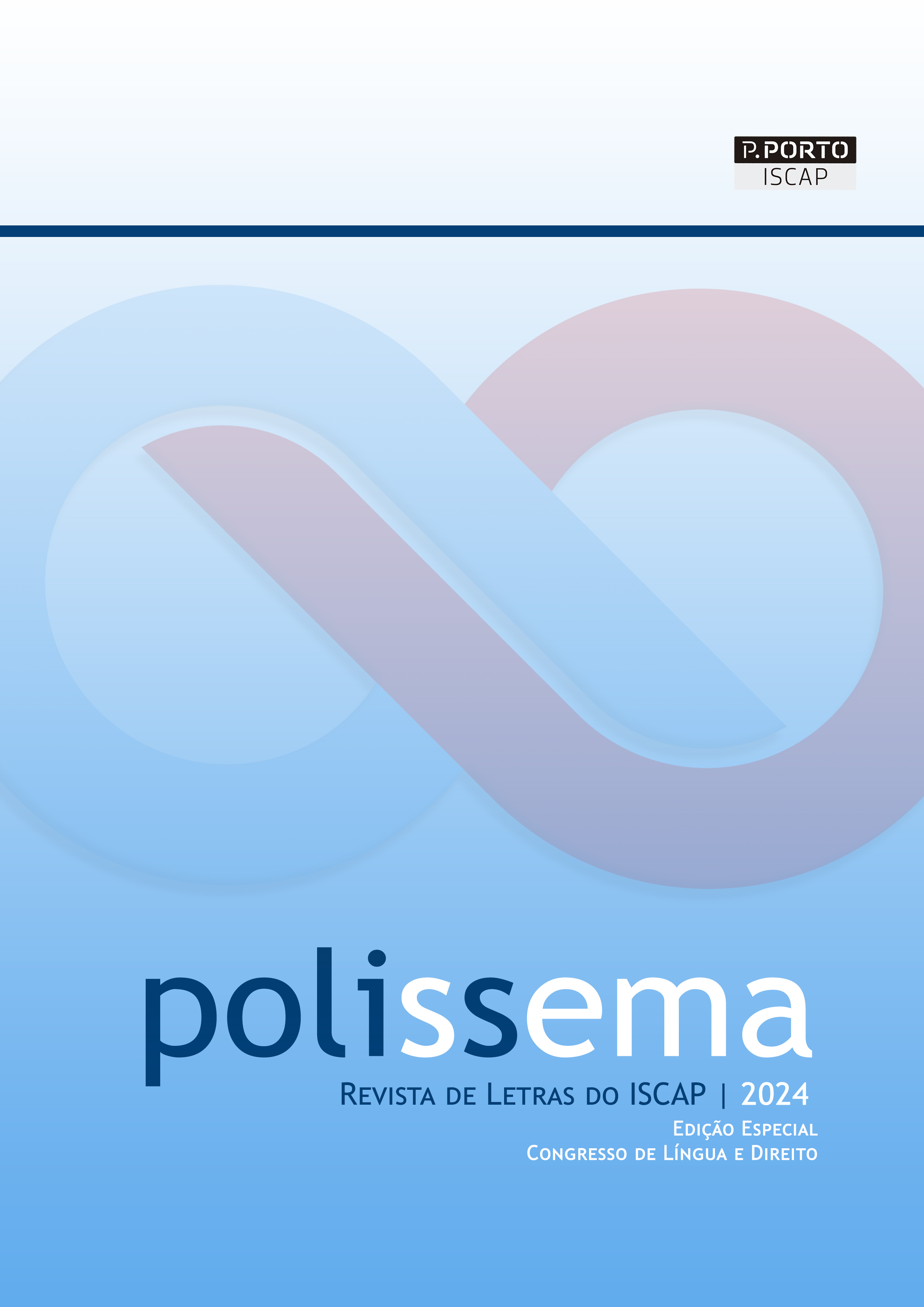TO A MULTILINGUAL VOCABULARY ON JUDGMENTS RENDERED IN CASES OF INTERNATIONAL DRUG TRAFFICKING
DOI:
https://doi.org/10.34630/polissema.vi.5622Keywords:
Forensic translation; translation; multilingual vocabulary; linguistic rights., FORENSIC TRANSLATION, TRANSLATION, multilingual vocabulary, LINGUISTIC RIGHTSAbstract
The right to speak one's own language, regardless of its foreign or national status, and the right to understand and to be understood (which involves respecting an individual's language preference) are part of the linguistic rights, inseparable from the right to translation. Each and every person must be guaranteed the right to know the contents of their judicial proceeding; such right will be exercised either if they understand the language or if they are assisted by a forensic interpreter. Regarding linguistic rights, forensic translation is, sometimes, the only way to protect a foreign defendant in Brazil against prosecution without due process of law. By developing a Multilingual Vocabulary on Judgments Rendered in Cases of International Drug Trafficking (VMSTID in Brazilian Portuguese), this study aims to offer interpreters professional support and to contribute to their job-related training. Therefore, this article examines the first results of this theoretical study, and its methodology, to develop a VMSTID and to identify the features of our corpus (judgments rendered in cases of International Drug Trafficking), as well as to carry out a discourse analysis of written trials.
References
Araújo, J.A.; Hartmann, E. O.; Borges G. R. (2016). Tráfico internacional de entorpecentes: o fluxo no maior aeroporto internacional do Brasil – Aeroporto de Guarulhos. IFDDH.
Authier-Revuz, J. (1984). Hétérogénéités énonciatives. Langages, 73, pp. 98-111.
Badaró, G. H. R. I. (2012). Processo Penal. Elsevier.
Barbosa, M. A. (1995). Contribuição ao estudo de aspectos da tipologia de obras lexicográficas. Ciência da Informação, 24(3). https://revista.ibict.br/ciinf/article/view/572.
Brasil. Planalto. Decreto-Lei nº 3.689, de 3 de outubro de 1941. Del3689 (planalto.gov.br).
Brasil. Planalto. Lei nº 13.105, de 16 de março de 2015. L13105 (planalto.gov.br).
Brasil. Planalto. Lei nº 9.099, de 26 de setembro de 1995. L9099 (planalto.gov.br).
Cabré, M.T. (1998). Elementos para uma teoria de La terminologia: hacia um paradigma alternativo. El lenguaraz. Revista acadêmica del Colégio de Traductores Públicos de la ciudad de Buenos Aires. 1/1, pp. 59-78.
Lavault-Olleon, E.; Grossmann, F. (2008). Langue du droit et harmonisation terminologique multilingue: l’exemple de LexALP, Lidil [En ligne], 38. http://journals.openedition.org/lidil/2776.
Lenoble, J.; Ost, F. (1980). Droit, mythe et raison: Essai sur la dérive mytho-logique de la rationalité juridique. Nouvelle édition [en ligne]. Presses de l’Université Saint-Louis.
Nordin, J. N.; Almeida, P. M. R. (2017). Interpretação forense: a experiência prática da Justiça Federal de Guarulhos e o treinamento de intérpretes. Revista da Ajufe, v. 30, n. 96, pp. 481-520. https://www.academia.edu/81390865/Interpreta%C3%A7%C3%A3o_forense_a_experi%C3%AAncia_pr%C3%A1tica_da_Justi%C3%A7a_Federal_de_Guarulhos_e_o_treinamento_de_int%C3%A9rpretes.
Nordin, J. N. (2018). Introdução à interpretação forense no Brasil. Transitiva.
ONU - Organização das Nações Unidas (2020, 18 de maio). Com mais de 20 idiomas, Moçambique tenta quebrar barreiras linguísticas. ONU News: Perspectiva Global Reportagens Humanas, pp. 1-3. Com mais de 20 idiomas, Moçambique tenta quebrar barreiras linguísticas | ONU News.
Pistori, M. H. C.. (2005). A sentença: um gênero no campo jurídico. Estudos Linguísticos, v. XXXIV, pp. 292-297.
Rosa, M. C.. (2021). Língua Oficial, Língua Nacional: Tem Diferença? Linguística I, v. 31, pp. 109-115, https://linguisticamcarlotarosa.wordpress.com/2021/07/26/lingua-oficial-e-cooficial/
UNESCO - Organização das Nações Unidas para a Educação, a Ciência e a Cultura (1996). Declaração Universal dos Direitos Linguísticos. dec_universal_direitos_linguisticos.PDF (dhnet.org.br).
Viveiros de Castro, E. (2018). A Antropologia Perspectivista e o método da equivocação controlada. (Tradução de Marcelo Giacomazzi Camargo e Rodrigo Amaro). Aceno – Revista de Antropologia do Centro-Oeste, 5 (10), pp. 247-264. DOI: 10.48074/aceno.v5i10.8341.
Downloads
Published
How to Cite
Issue
Section
License
Copyright (c) 2024 POLISSEMA – ISCAP Journal of Letters

This work is licensed under a Creative Commons Attribution-NonCommercial-NoDerivatives 4.0 International License.


